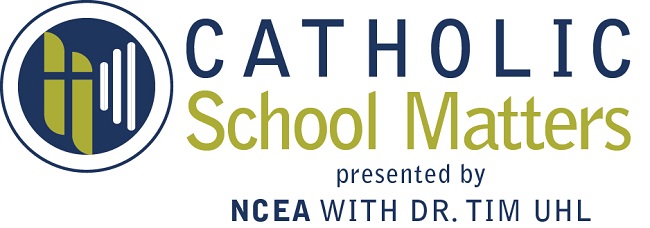When I became principal of Catholic High in New Iberia in 2006, I was aware that the school played a role in the book Dead Man Walking (published in 1993) by Sr. Helen Prejean. I found out that the couple murdered were David LeBlanc, a senior at Catholic High Class of 1978, and Loretta Bourque, a student at New Iberia Senior High. They were killed after the Catholic High Homecoming football game in the fall of 1977 and their bodies weren’t discovered until Saturday, the date of the Homecoming dance.
I found out that the Class of 1978 had taken care of David’s parents, especially his mother. I discovered that Sister Helen’s role with Patrick Sonnier (one of the two brothers who was executed for the murder) was painful for this highly-Catholic community. “She never reached out to the family,” I often heard. There is still palpable bitterness in New Iberia directed toward Sister Helen.
For their 30 year reunion, I asked the class if they’d like to invite Mrs. LeBlanc back for the Homecoming Mass. She accepted the invitation and for the first time since her son had died, she visited Catholic High. This is the same gym where police appeared on that Saturday night and asked the Christian Brothers if they could identify the class ring with a “DL” engraved inside.
I had always wanted to talk to Sister Helen and ask her about that community perception. Last month, I had the chance to talk to her and recorded it for the Catholic School Matters podcast. Before I did, however, I re-read Dead Man Walking. There it was on page 32, her admission that she forgot to reach out to the victims’ families.
I see now that I devoted my energies exclusively to Pat Sonnier’s plight when I should have shouldered the struggles of victims’ families as well. I should have reached out to the Bourques and LeBlancs immediately and offered them love and comfort, even if they chose to reject it. Now, as I befriend each new man on death row, I always offer my help to his victim’s family. Some accept my offer. Most angrily reject it. But I offer.
I listened to Sister Helen speak in the co-Cathedral before I interviewed her. She offered the same admission—that she had made mistakes and had learned. She also shared the story of how David LeBlanc’s father felt pressured to support the death penalty. He reached out to Sister Helen; they prayed together. He also reached out to Patrick Sonnier’s mother, offering his support and later attending her funeral.
When I embarked on this conversation with Sister Helen, I thought I would find meaning in her arguments against the death penalty. However, the meaning I found in the conversation was that we need to listen to each other. Sister Helen didn’t listen to the Bourques and LeBlancs originally. And the good people in New Iberia didn’t bother to listen to Sister Helen’s apology and have been carrying 40 years of resentment.
In addition, I’ve included the conversations and arguments on this divisive issue. If you’re like me, tracking the arguments is difficult. And we often don’t reach out beyone our own thought bubbles to listen to the other side. So I have tried to present some of the best articles below so you can read, learn, and listen.
Want to keep up with the conversations surrounding Catholic education? Set up your own Google Alert, subscribe to this newsletter by clicking “follow,” subscribe to the Catholic Schools Daily, or subscribe to the Catholic School Matters podcast.
Top 5:
Inspired by my podcast conversation with Sr. Helen Prejean, I blog about the lessons she learned in this ministry and how good Catholics are not listening to each other. I then present the best articles I could find related to capital punishment.
The Top 5:
- In the first section (“Articles About the Death Penalty”) the first link is to a great post about religion and the death penalty. It’s interesting to see the differing perceptions between religions as well as the relationship between adherence and position for/against the death penalty.
- In the second section (“Catholic Arguments For the Death Penalty”) the first article is written by Edward Feser, whose recent book has argued for the Catholic position favoring the death penalty, lays out the Catholic arguments for the death penalty.
- The next article lays out the USCCB (i.e. the Catholic bishops) position on the death penalty.
- The very next article presents the Catholic arguments against the death penalty is a succinct, articulate manner.
- I recommend reading the NCR article about Pope Francis’ position on capital punishment.
Next week, I’ll be presenting the Vatican’s recent working document on Catholic Education “Educating to Fraternal Humanism.” I’ll blog about the document, present a podcast exploring its meaning, present four different blogs from thought leaders in Catholic education, and present some other links and commentaries on the document. The Church Document series marches on!
Have a great week!
